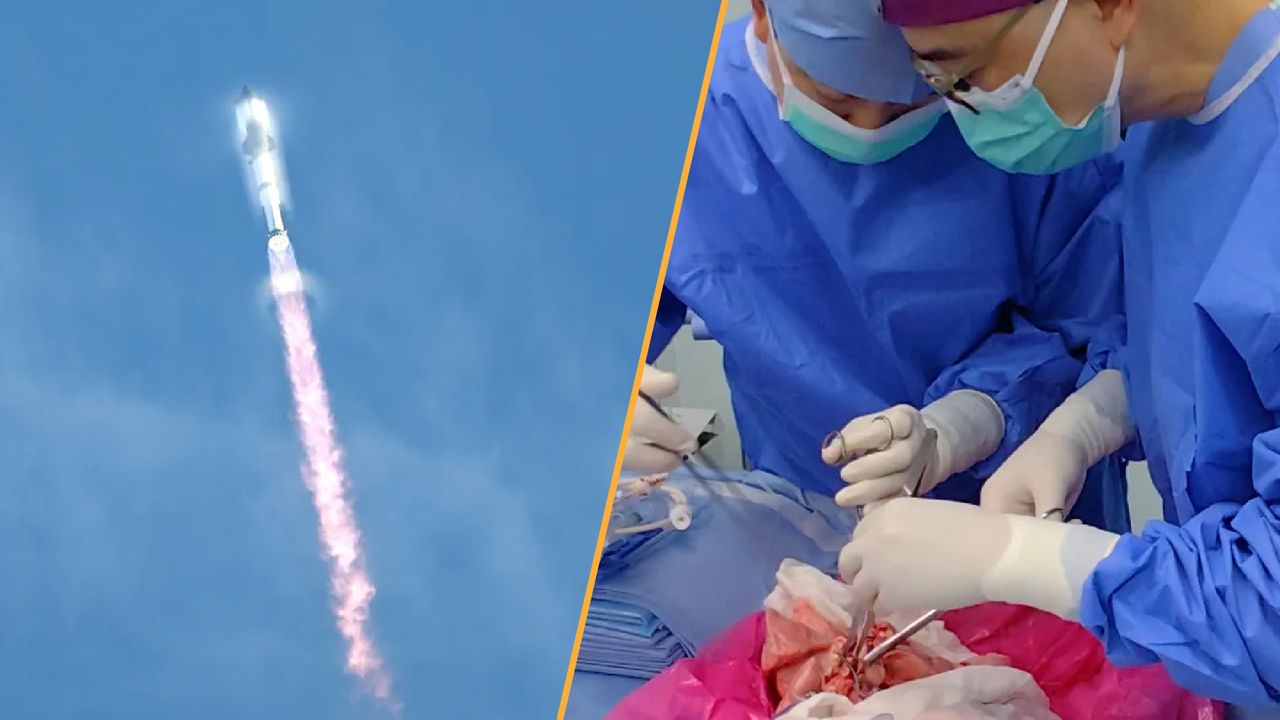Innovations in Health and Technology: A Weekly Review
Author: Ben Turner

In this week's roundup of notable science and technology news, we observe remarkable advancements, including the world’s first successful pig-to-human lung transplant and the strategic discussions around advanced AI chip sales to China. As the world grapples with healthcare innovations and technological advancements, these stories shed light on the intersection of medicine and technology.
The pig-to-human lung transplant marks a pivotal moment in xenotransplantation, where organs from other species are used for human medical purposes. This groundbreaking procedure, described by leading health experts, not only demonstrates the potential to solve organ shortages but also raises ethical questions regarding animal use in medicine. As researchers strive to improve success rates in organ transplants, such procedures could reshape transplant waiting lists and offer new hope to countless patients.

A medical professional studies a new organ transplant technique.
As we shift our focus to advancements in technology, Nvidia's CEO Jensen Huang has reported ongoing discussions with the White House regarding the sale of AI chips to China. These talks center around the Blackwell series of chips, aiming to allow Nvidia to sell a less advanced version of these next-generation GPUs to the Chinese market. The complexity of the situation lies not only in the technological implications but also in the geopolitical tensions surrounding AI and semiconductor supply chains.
In addition to international trade discussions, the gaming industry is poised for transformation due to AI technologies. Innovations in AI-powered video games are allowing developers to enhance user interaction and game design, suggesting a future where gaming evolves beyond conventional paradigms. Insights from Esquire Singapore outline how studios are utilizing AI to not only elevate gameplay experiences but also to streamline the development process, indicating significant shifts on the horizon.
Amidst these developments, Cognizant, the IT giant, aims to industrialize 'agentic AI' with a plan to deploy 1,000 context engineers across enterprises. This initiative reflects a growing trend to integrate advanced AI systems into organizational workflows, enhancing efficiency and adaptability. By partnering with specialists in the field, Cognizant highlights the importance of context in AI applications, paving the way for more intelligent and responsive business systems.

AI technologies are being advanced to meet business needs.
However, concerns about AI and its applications are also at the forefront. Nvidia’s CEO expressed a contrary perspective, suggesting that rather than liberating us from labor, AI may lead to increased workloads as industries integrate these technologies. This perspective counters the popular narrative that automation and AI will create a utopia of leisure, emphasizing instead the need for humans to adapt to new technologies in the workplace.
Amid these advancements, a new service called ChatGPT Go has been launched in India, offering an accessible version of AI for everyday users. Priced at Rs 399 per month, it provides access to GPT-5 along with additional features tailored for a wider audience. This introduces a new tier of interaction with AI, showcasing how technology continues to evolve to meet user needs and preferences.
In healthcare, digital transformation is projected to elevate the global market for digital healthcare to $3.7 billion by 2028. Key players like CollabRx are leading this shift by implementing technologies like blockchain and AI to enhance the security and efficiency of healthcare services. These solutions promise improved patient care through transparent data management while merging technology with patient-first approaches to treatment.

Emerging technologies lead to a revolution in healthcare services.
Furthermore, AI applications are increasingly found in security measures, with the introduction of AI security robots like iRobo in India. These robots are equipped with advanced monitoring technology and are designed to work alongside human security personnel, demonstrating the eclectic utility of AI across various sectors.
In conclusion, the intersection of health and technology presents both unprecedented opportunities and challenges. As we witness remarkable innovations such as organ transplants from genetically modified organisms and the widespread integration of AI into everyday products and services, it becomes clear that the future will demand thoughtful engagement with the ethical, legal, and practical implications of these advancements.